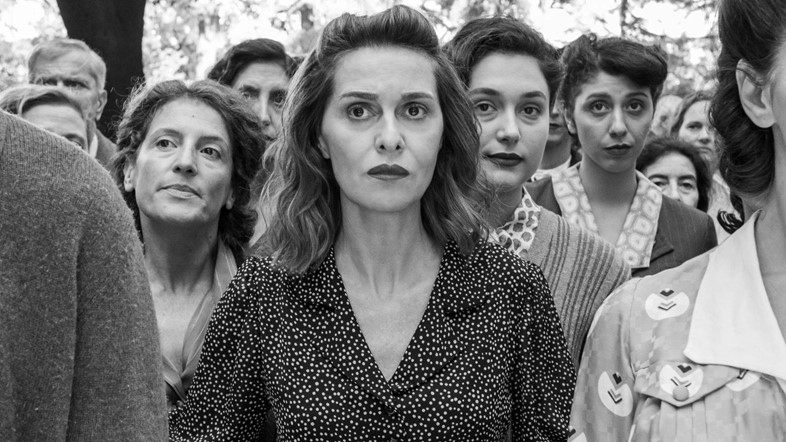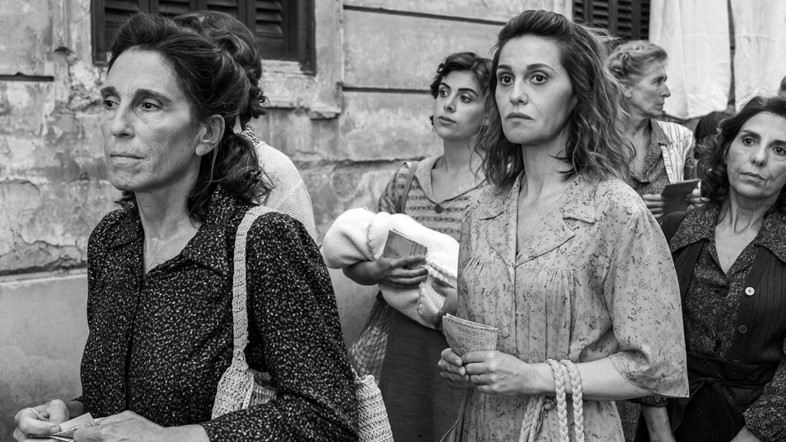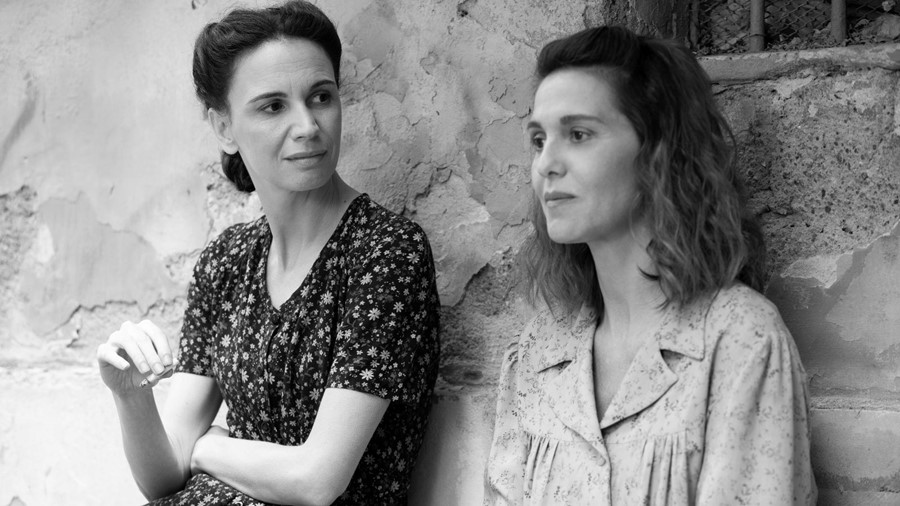As There’s Still Tomorrow is released in the UK, Paola Cortellesi talks about her Rome-set drama about domestic abuse and female oppression, and why it’s resonating with women in Italy and beyond
Paola Cortellesi is still in disbelief. While UK and US cinemas spent 2023 tidying up pink glitter and suit lint from ‘Barbenheimer’, Italy’s biggest film of last year was actually a black-and-white period drama about domestic abuse and female oppression. Written by, directed by, and starring Cortellesi, There’s Still Tomorrow (or C’è ancora domani, in Italian) made $36 million at the Italian box office, beating Barbie and Oppenheimer with their measly, respective $35 million and $15 million. Not only one of Italy’s ten highest-grossing films of all time, it’s also the country’s most successful feature directed by a woman.
“As far as Italy is concerned, it was absolutely the right moment,” says Cortellesi through an interpreter, speaking to me in Leicester Square the week of the film’s UK release. “The cinematic language ushers the audience in without being too harsh. Because I use comedic traits without it being a comedy in itself, people are lulled into the narrative. In that way, it’s possible to talk about something exceedingly serious without antagonising the audiences.” The 50-year-old filmmaker acknowledges that, in the UK, preview screenings sold out so quickly that newer ones were arranged, only for those to sell out as well. “It’s very unexpected.”
Set in Rome in 1946, There’s Still Tomorrow stars Cortellesi as Delia, a housewife who’s regularly beaten by her husband, Ivano (Valerio Mastandrea), to the extent that it’s part of their daily routine. In the opening scene, shot in the style of Italian neorealism, the couple wake up in bed, he strikes her in the face, and she simply brushes her hair before preparing breakfast. Later, around the household, when it’s time for more poundings, the three children know to vacate the room. However, it’s around the eight-minute mark that the film switches: Delia struts, over the opening credits, to a noisy guitar riff by the Jon Spencer Blues Explosion, while the boxy aspect ratio widens to fill the monochrome frame.
After all, while There’s Still Tomorrow treats its grim subject matter seriously, it also possesses a light touch and rapid pace. Unsurprisingly, in Italy, Cortellesi was known primarily for comedic movies (she won a David di Donatello award for Escort in Love) and TV sketch shows. “The balance [between comedy and drama] is my natural register,” she says. “Ivano provides comedy because it’s important to understand that violent people like him [and his father] are stupid. You cannot identify with them. In order to present such a complex theme, you need to embrace complexity, which includes having comedic traits.”

Arguably more complexity is required for depicting the sustained violence towards Delia throughout the two-hour running time. Fight scenes are choreographed with slapstick energy so that the punches have punchlines; balletic battles are scored to inappropriately amorous ballads; bruises and drops of blood materialise on Delia’s skin then vanish seconds later through CGI. “I wanted to convey the cyclical nature,” the director explains. “It also can’t be shocking for the sake of being shocking. It required a lot of tests in the editing to convey the idea that this domestic violence is inescapable and never-ending.”
When co-writing the script, Cortellesi envisioned her debut feature to be shot in the style of neorealismo rosa – a “pink” version of Italian neorealism from the 1940s and 50s that involved romantic storylines. It’s thus extra impressive that There’s Still Tomorrow has connected with younger viewers, many of whom have identified with Delia’s teenage daughter, Marcella (Romana Maggiora Vergano), who hopes to break the cycle. “A young lady told me she recognised herself in Marcella being quite hard towards her mother, and trying to push her into bettering her life,” says Cortellesi. “And now she thinks she was too stern towards her mother. Also, a gentleman of a certain age told me he identified with the little boys because he was sent away when [violent] things were happening. What’s heartening is that these strangers are prepared to be so open in a public discussion.”
Cortellesi also credits the film’s success to timing. In November, national protests arose around the murder of a 22-year-old student, Giulia Cecchettin, by her boyfriend. “In Italy, there’s a femicide every 72 hours,” Cortellesi sighs. “And femicide is just the tip of the iceberg.” The director explains that the script started with its post-war setting of May and June 1946 since that was when women got to vote on a landmark referendum to end the monarchy. “That particular moment in time was the beginning of the Italian Republic,” she says. “I chose that time, that moment, that specific day, as it’s the inception of what Italy is.”

Cortellesi, who drinks a Pret coffee during our evening interview, admits she’s been touring with her film for more months than expected. It could be longer – the film is eligible for next year’s Oscars. “I would love that,” she says, “but it’d be difficult.” Otherwise, the director is still amazed by the international reactions, country by country, and its ongoing topicality. Without giving too much away, this is a film that has Outkast’s B.O.B. on the soundtrack. “It’s a very contemporary film set in the past,” she says. “I wanted to examine what stayed the same, and what has changed. What’s changed for the better is that we have rights embedded in constitutions. What’s remained, unfortunately, is the toxic mentality that we still witness today.”
There’s Still Tomorrow is out in UK cinemas now.
